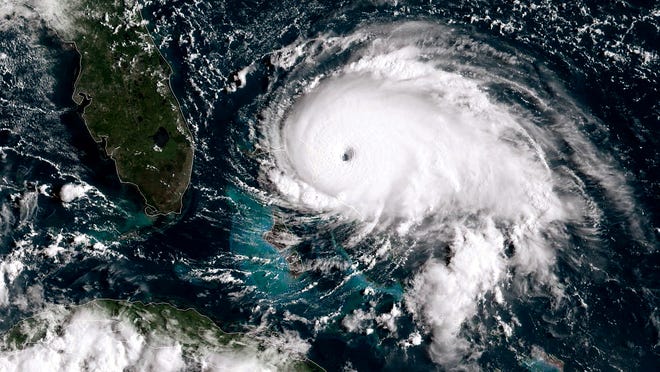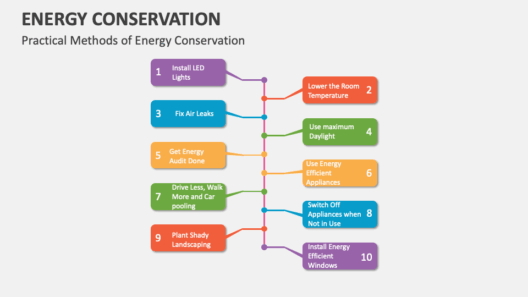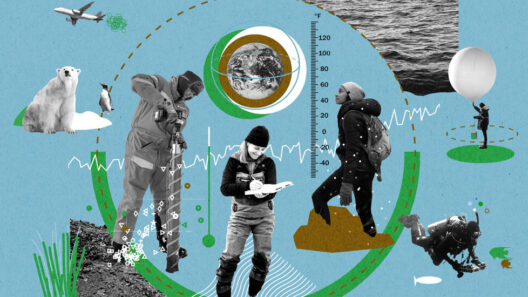In recent years, the frequency and intensity of hurricanes have become topics of urgent discussion, particularly regarding their potential linkage to global warming. It is widely accepted that hurricanes, or tropical cyclones as they are scientifically termed, are atmospheric phenomena that derive their energy from warm ocean waters. As global temperatures rise, predominantly due to human-induced greenhouse gas emissions, the notion that hurricanes are somehow connected to climate change has gained prominence among scientists and the public alike.
At the core of this debate lies a deceptively simple observation: warmer air holds more moisture. This fundamental principle of physics creates a situation in which increased sea surface temperatures, often an outcome of global warming, contribute to more intense and possibly more frequent hurricanes. A plethora of studies underscore this hypothesis, establishing a robust correlation between rising temperatures and the shifting dynamics of tropical storms.
Historically, hurricanes were categorized based on their sustained wind speeds. However, even without changes to their frequency, a warming atmosphere can augment the devastating potential of these storms. For example, an increase in ocean temperatures can elevate wind speeds, intensify rainfall, and exacerbate flooding—each contributing to heightened storm surges that can obliterate coastal communities.
Research has shown that the probability of a Category 4 or Category 5 hurricane has risen substantially compared to the pre-industrial era. The rationale is compelling: as the ocean warms by just a few degrees, the energy available for storm development escalates. Consequently, this amplification not only influences the destructiveness of hurricanes but also their longevity.
Moreover, the repercussions of these potent storms reverberate beyond immediate physical damage. The economic implications are staggering. Homes and infrastructure can be obliterated, and the insurance industry grapples with increasing claims, potentially leading to economic instability. In addition, the social dimensions cannot be minimized: entire communities may face displacement, causing long-term socio-economic ramifications. The existential threat posed by climate change thus transcends environmental discourse—it intertwines with issues of equity, justice, and resilience.
Exacerbating the situation is the phenomenon known as sea-level rise, a direct result of global warming. As ocean levels rise, the coalescence of tidal surges and storm surges during hurricanes results in devastating flooding scenarios that were previously uncommon. FEMA and the National Oceanic and Atmospheric Administration (NOAA) caution that this will lead to increased vulnerability among coastal populations. As areas become less habitable, there will be a future marked by climate refugees seeking safety and stability.
The interrelationship between hurricanes and climate change is not merely theoretical; it is established through empirical data. A burgeoning consensus within the scientific community posits that while individual hurricane events cannot be directly attributed to climate change, the broader trends and patterns suggest a significant shift influenced heavily by anthropogenic factors. Advanced climate models indicate that this relationship will likely intensify in the coming decades if concerted global action is not taken.
One illustrative example is Hurricane Harvey, which struck the Texas Gulf Coast in 2017. This hurricane shattered precipitation records, with some areas receiving over 60 inches of rain. Researchers estimated that climate change increased the storm’s rainfall by 15 to 40 percent. Such quantifiable evidence reaffirms the hypothesis that climate change does not merely alter hurricane mechanics; it magnifies their consequences.
Intensifying storm activity also poses a challenge for meteorologists and emergency planners. As the climate evolves, predicting hurricane paths and their potential impacts becomes increasingly complex. Historic data may provide a foundation, but the changing conditions require re-calibration of existing models and approaches. Preparing communities for the unexpected necessitates rigorous scientific inquiry and innovative solutions that are informed by sound climate science.
Amidst this somber reality lies a flicker of hope. Awareness and advocacy surrounding climate change are at an all-time high, spurring calls for action on multiple fronts—from governmental policy initiatives aimed at reducing carbon footprints to grassroots movements demanding accountability from corporations. The youth-led climate movement has galvanized public interest and engagement, prompting conversations that transcend political barriers and advocate for systemic change.
Moreover, advancements in renewable energy technology provide viable alternatives that could reduce society’s reliance on fossil fuels. Transitioning to sustainable energy sources can have a profound impact on mitigating the effects of climate change, aiding in the stabilization of temperatures and atmospheric conditions conducive to hurricane development.
The intersection of climate change and hurricane activity serves as a clarion call for global action. Each hurricane season portends not only immediate threats but also underscores the long-term implications of unchecked carbon emissions. Policymakers ought to heed these warnings, implementing strategies that prioritize ecological sustainability, resilience, and social equity.
Ultimately, understanding the intricate connection between hurricanes and global warming is not just an academic exercise but an urgent necessity. As the storms evolve, so too must our response and preparedness. Empowering communities through education, fostering scientific literacy, and supporting innovative research remain indispensable as we navigate the stormy future ahead. The science is clear, and the writing is on the wall: hurricanes and global warming are inextricably linked, and our collective future hinges on our willingness to confront this truth with urgency and resolve.








